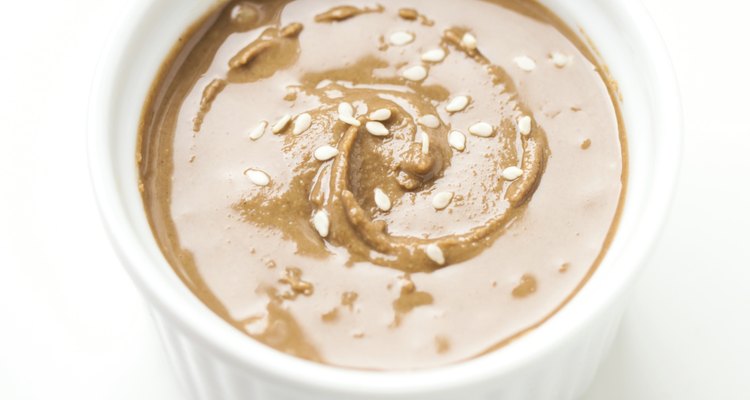
Jasmina81/iStock/Getty Images
Acne plagues 80 to 90 percent of adolescents in the United States, according to the University of Illinois – McKinley Health Center. Acne has several causes, from bacteria to an overabundance of natural skin oils, but the result is the same – angry, red bumps, usually on your face, chest and back. Hundreds of home remedies exist for the treatment of acne, but few, if any, actually work. Adding tahini to the diet is one of the less common, and possibly less effective, acne home remedies.
Acne Facts
Acne, also known as blemishes, pimples or zits, occurs when your pores are blocked by natural oils, dead skin cells or dirt. Some pimples contain the bacteria P. acnes, but not all of them do. Acne is most often treated by using topical treatments such as salicylic acid and benzoyl peroxide. In severe cases, oral antibiotics are prescribed. There is little to no evidence that diet has any effect on acne, though preliminary studies suggest that eating a diet high in refined starches may be a contributing factor.
Tahini Facts
Tahini is made much the way peanut butter is, though it uses sesame seeds rather than peanuts. Tahini is used in Middle Eastern cooking as an ingredient in hummus – ground chickpeas with lemon and garlic -- and baba ganoush -- eggplant, garlic, lemon juice and olive oil. It is also used in halvah, a candylike sweet made with honey. Tahini is high in protein and fiber. It is also a good vegetarian source of zinc.
Zinc and Acne
According to the University of Maryland Medical Center, preliminary studies suggest that zinc may help treat acne, but concerns exist regarding the amounts of zinc used. topical zinc has also been studied, but the results are inconclusive. Tahini is a dietary source of zinc, but no evidence exists to prove that it has any effect on acne. Tahini as a topical treatment has not been studied.
Warning
Acne that does not respond to any sort of treatment after four to six weeks may need to be treated with prescription medications or topical treatments. Do not take zinc tablets if tahini is a large part of your diet, because too much zinc can be toxic. The recommended daily allowance of zinc is approximately 11 milligrams. The University of Maryland Medical Center cautions you not to take more than 40 milligrams of zinc per day without the advice and consent of your doctor.
Related Articles
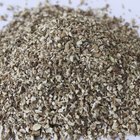
Dandelion Root for Reduced Acne Symptoms

Can Borage Oil Help Acne?

Arnica for Acne

What Are the Benefits of Extrapone ...

How to Reduce Acne Inflammation

What Are the Benefits of Ashwagandha in ...
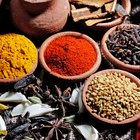
Fenugreek for Acne

Can Any Home Remedies Get Rid of Acne ...

Pycnogenol and Acne
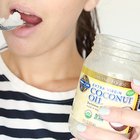
Skin Benefits of Eating Coconut Oil

Burdock Root for Acne
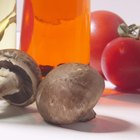
Mineral Oil Vs. Olive Oil
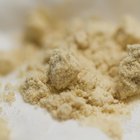
How to Use Mustard on Pimples
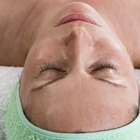
Acne & Brewer's Yeast

Is Rooibos Tea Good for Acne?

Chasteberry for Acne

B-6, Zinc & Acne

Anise Seed Cautions and Side Effects
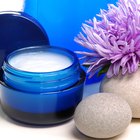
How to Heal Acne With Borax

How to Maintain Good Skin After Accutane
References
Writer Bio
Brynne Chandler raised three children alone while travelling, remodeling old homes, taking classes at the Unioversity of California Northridge and enjoying a successful career writing TV Animation. Her passions include cooking, tinkering, decorating and muscle cars. Brynne has been writing fun and informative non-fiction articles for almost a decade. She is hard at work on her first cookbook, which combines healthy eating with science-based natural remedies.
Photo Credits
Jasmina81/iStock/Getty Images